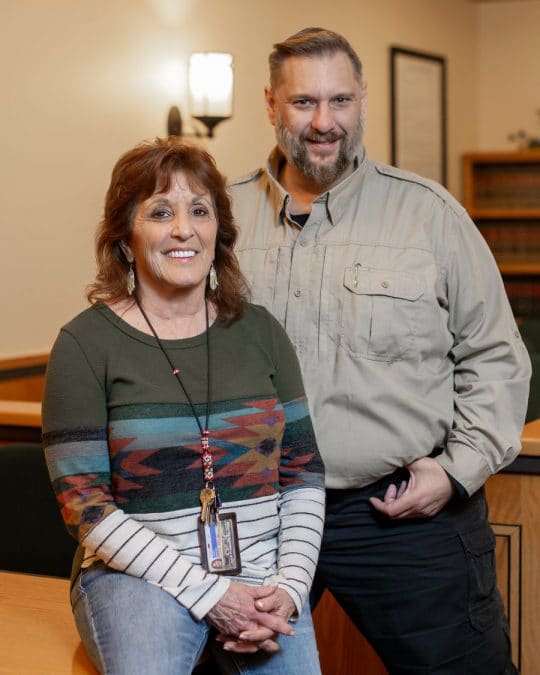When considering programs such as Indian Child Welfare and family services, one group often left out of the conversation is elders. Adult protective service programs do not always receive adequate funding and are far from universal throughout the country.

However, the U.S. Department of Justice Office for Victims of Crime recently awarded Citizen Potawatomi Nation a grant to fund the Tribe’s new Adult Protective Services Department for the next three years. With more than a quarter of a million dollars available beginning in January 2020, the Tribe laid the groundwork for a growing staff and set of resources specifically devoted to the investigation of elder abuse and welfare. The CPN program is amongst the first of its kind for a tribe in the U.S.
APS Department Director Janet Draper oversaw CPN’s Indian Child Welfare Department prior to her new position. During that time, she accepted cases of elder abuse and performed welfare checks.
“I just felt over the years that something more needed to be done,” she said.
“With this new program, we are going to be able to go to each of those Tribal members and/or their spouses and/or any other Natives that are living in … housing that the Tribe has to offer for elders and be able to focus on them and check on them and be another set of eyes.”
APS Case Manager Brian Moore began working for the Tribe in September 2019 to assist with the beginning of the department and help with the cases he and Draper have already started. He worked for the State of Oklahoma in the same field. During his short time with CPN, he already appreciates the streamlined nature of its services and resources as well as the ability to focus on individuals.
“With the State of Oklahoma, you’re really just stuck working with neglect, exploitation and abuse. Here, we’re able to provide all sorts of assistance to our elders, not just investigating those particular crimes, but we can also just provide assistance to them when they’re just needed,” Moore said. “It’s just a phenomenal program that we have here.”
The grant covers staff and procedural costs for 50 cases a year, each one averaging more than 80 work hours to close. Their complex nature stems from the addition of several factors not present in child welfare, including property, debt, Social Security and medication theft by family members.
“It’s embarrassing for them to say, ‘Hey, I’ve been swindled out of thousands of dollars,’ or ‘My grandchild has taken my money. I don’t have money now for food or medication.’ And it’s sad, and it goes on every day,” Draper said. “And unfortunately, it happens within the Citizen Potawatomi Nation community. And I want our elders to know that there is someone they can call that they can trust to help them solve this problem.”
The grant will allow a portion of the allocated funds to purchase a van compliant with Americans with Disabilities Act guidelines dedicated to the elders. Draper said it returns a sense of independence through transportation.
“We’re going to be able to transport them to doctor’s appointments or to visit someone or to go shopping. And although the Potawatomi have a transit department, sometimes they’re booked. We want to be able to provide that service to the ones that can just pick up the phone and say, ‘I want to go to Walmart,’” she said.
Already, CPN APS has nearly 15 cases as the new year begins. Although the program is in its infancy, talks remain focused on teamwork and possibilities. As the only tribe in Oklahoma with an APS staff, Draper and Moore hope to set an example for their colleagues as they grow into uncharted territory.
“It shows that the Potawatomi Nation is concerned for all of its citizens and the realization that this problem exists in our own backyard,” Draper said. “But the Potawatomi Nation is going to step up as always and take care of the problems within their community so that everybody is proud and excited for these type of programs to start.”
For more community services from Citizen Potawatomi Nation, visit cpn.news/services.
